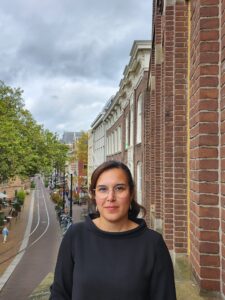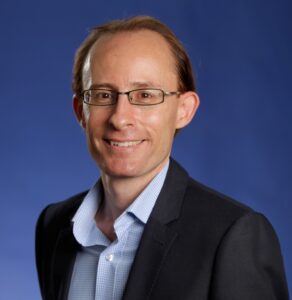Failing Accountability in Palestine and Israel
The new episode of Justice Visions addresses the escalating violence in Palestine and Israel following the Hamas attacks on October 7th and Israel’s assault on the Gaza Strip. In a context where international crimes are occurring in an environment where impunity prevails, the episode zooms in on debates about justice and accountability, highlighting questions that have not been covered extensively elsewhere.
The episode features four eminent international lawyers, each offering unique perspectives on issues related to accountability. Ben Saul is the special UN rapporteur on human rights and counter-terrorism. Sari Bashi is the program director at Human Rights Watch and founded the Israeli NGO Gisha, focusing on freedom of movement for civilians in Gaza. Nada Kiswanson is the MENA specialist for Impunity Watch who represented Palestinian victims at the ICC. Shawan Jabarin is the director of Al-Haq, one of the leading Palestinian human rights organizations.
The current conflict is unprecedented because of the number of civilian casualties and the type of weapons used during Israel’s military campaign. Shawan stresses that the possibility of a genocide is unfolding. “Some of the families were erased completely and were even dissolved from the civil registration file, because the whole family was killed.” He stresses that Israel attacks residential areas infrastructure intentionally, “taking revenge against civilians for political reasons”. Nada concurs that Israel appears to inflict maximum amount of destruction and suffering, underscoring “the allegedly disproportionate and indiscriminate bombing of innocent Palestinians in their homes, the dehumanization of Palestinians by Israeli political and military leaders calling, for example, for the erasure of Gaza, referring to Palestinians as human animals, as well as attacks against refugee camps and medical facilities.”
These crimes, however do not take place in a vacuum. We must examine them against the background of a prolonged occupation, and a situation of apartheid. As Sari highlights, “Human Rights Watch has followed the lead of Palestinian human rights organizations and intellectuals in concluding that the Israeli government is carrying out the crimes against humanity of apartheid and persecution against Palestinians. A significant element of those crimes is the quest for Jewish demographic supremacy in the land between the river and the sea. This includes, for example, not letting refugees return. 70% of Gaza’s population are refugees. These are people who have, for 75 years, not been allowed to return to the areas in Israel which their parents and grandparents fled or were expelled from.”
The prevailing impunity in Palestine and Israel is shocking. Ben Saul stresses that both sides have a poor record in holding their forces accountable, highlighting the need to conduct international investigations. In practical terms, the International Criminal Court (ICC) stands out as the independent mechanism with a mandate to prosecute international crimes available for Palestinians. But even if the ICC has been investigating the situation for some years, Ben Saul sees “a pretty stark difference between the speed with which the ICC prosecutor mobilized resources as soon as the latest round of the Ukraine war broke out” and the slow pace that characterizes procedures in Palestine.
As Israel has refused to cooperate with the Court, and many states attempted to limit the Court’s reach, the Court is de facto blocked. As Nada stresses, what is needed is “political will to support the ICC fully without compromise, and also to complement the court by enabling domestic courts’ exercise of universal jurisdiction over grave crimes committed in Palestine. Simply, accountability has to be considered an integral part of any transition towards peace.”
More information about the speakers
Sari Bashi, Program Director at Human Rights Watch, leads the organization’s research. Prior to joining HRW, Sari co-founded and ran Gisha, the leading Israeli human rights group promoting the right to freedom of movement for Palestinians in Gaza. She has taught international humanitarian law at Yale Law School and Tel Aviv University and supervised research at Democracy for the Arab World Now. She is the author of Maqluba: Upside Down Love (Hebrew) and of the Umm Forat blog about raising her children in the occupied West Bank.

Sari Bashi
Nada Kiswanson is a lawyer specializing in international criminal and human rights law who has worked extensively on Israel’s occupation of Palestine. Over the past decade, she worked with Palestinian civil society at various institutions, such as the UN, EU and ICC and also represented hundreds of Palestinian victims in judicial proceedings before the ICC Pre-Trial Chamber. She is currently a MENA specialist with Impunity Watch. Nada co-edited and contributed to the volume Prolonged Occupation and International Law: Israel and Palestine, released by BRILL earlier this year. Her latest opinion piece is The Wheels of Justice Must Also Turn for Palestinians.

Nada Kiswanson
Shawan Jabarin is a Palestinian human rights defender, General Director of the Palestinian human rights organization Al-Haq. From 2005 to 2009, Shawan was a member of the Board of Directors of Defense for Children International – Palestine, the national section of the Geneva-based Defense for Children International. He is also a member of Human Rights Watch Middle East Advisory Board. He was Amnesty International’s first Palestinian Prisoner of Conscience, and he has worked for years promoting human rights in the face of Israeli occupation of the Palestinian territories.

Shawan Jabarin
Professor Ben Saul is Challis Chair of International Law at the University of Sydney and the United Nations Special Rapporteur on human rights and counter-terrorism. He has taught at Harvard, Oxford, The Hague and Xiamen Academies of International Law, in Italy, India, Nepal, and Cambodia. He has published 20 books and hundreds of scholarly articles. Moreover, he has advised UN bodies, governments, militaries, security agencies, and NGOs; practiced in international tribunals; undertaken missions in over 35 countries; and appears frequently in the international media.

Professor Ben Saul



